
Introduction
The necessity for India-specific, trustworthy, and practical sustainability ratings.
In today’s India, sustainability performance is no longer a choice, it’s a necessity. Companies of all sizes are accountable for their environmental, social, and ethical impact. The government, businesses, and consumers are all placing a high priority on responsible practices.
Sustainable Success for Indian Businessesb To remain competitive and reliable in the Indian market,b executives must integrate sustainability into theirb decision-making and business relationships. This includesb understanding sustainability risks and opportunities throughout the value chain.
Clear Metrics for informed Decisions Simple, reliable, and globally recognized sustainability ratings can be powerful tools for Indian businesses. These ratings can guide informed decision-making, promote transparency, and ultimately contribute to a more sustainable future for India.
Benefits
- Resilience: Reduced risk of disruptions in operations or supply chains due to resource scarcity or environmental regulations.
- Brand Power: Stronger reputation built on environmental and social responsibility.
- Cost Savings: Collaborative efforts like reduced energy consumption lead to lower operational costs.
- Investment & Growth: Access to capital and potentially higher valuations as investors increasingly consider Environmental, Social, and Governance (ESG) factors.
- Market Advantage: Meeting the growing demand from Indian consumers for sustainable and responsible products and services.


Challenges
- Conflicting Standards: Navigating numerous sustainability standards and labels, which may differ in rigor or relevance to the Indian market.
- Internal Change: Managing organizational change to embed sustainability throughout roles, processes, and business relationships.
- Partner Engagement: Finding common ground with partners on sustainability standards to build shared value, potentially complicated by traditional practices.
- Limited Expertise: Overcoming potential gaps in sustainability knowledge and resources within companies.
- Complex Networks: Addressing the complexity of Indian supply chains and business networks, where traceability and transparency can be difficult.
The CleanCarbon Solution
Our user-friendly web platform provides dynamic scorecards that simplify the task of managing different sustainability standards. This allows Indian companies to:
- Gain Clarity: Easily assess the sustainability performance of suppliers, partners, and investments within the Indian context.
- Drive Collaboration: Facilitate communication and collaboration with your network to achieve shared sustainability goals.
- Build Expertise: CleanCarbon acts as an extension of your team, providing valuable insights and data-driven recommendations.
- Optimize Resources: Focus internal resources where they'll have the most significant impact, maximising your sustainability efforts.
With CleanCarbon, Indian businesses can achieve sustainable growth, navigate complex challenges, and build a competitive advantage in the evolving Indian market.

The CleanCarbon Solution
CleanCarbon goes beyond typical ratings. We assess the core of a company’s sustainability practices: its management systems. A strong management system drives strong policies, meaningful actions, and positive environmental and social results.
Multiple Sources
The company’s rating is determined not just by the supporting documents provided but also by insights from local authorities and various thirdparty organizations, such as auditors and external compliance databases.
Accountability
CleanCarbon prioritizes security and transparency. All documents submitted for ratings are stored securely, ensuring traceability. Rated companies within India gain detailed access to their scoring results, enabling them to understand and improve their sustainability performance.
Complete Transparency
CleanCarbon prioritizes security and transparency. All documents submitted for ratings are stored securely, ensuring traceability. Rated companies within India gain detailed access to their scoring results, enabling them to understand and improve their sustainability performance.
Rigor and Collaboration
CleanCarbon commits to rigorous and transparent methodology. We prioritize quality control, continuous improvement driven by industry insights, and collaboration with Indian stakeholders. This approach results in reliable ratings that empower Indian businesses on their sustainability journey.
Assessment by Sustainability Experts
A team of sustainability experts from across the globe examines the supporting documents and stays updated on the most recent sustainability best practices.
Continuous Improvement
By sharing best practices, fostering knowledge exchange between industries, and creating a culture of learning, Indian businesses can collectively accelerate their progress towards a more sustainable future
Best in Class Technology
By leveraging technology in the assessment process, CleanCarbon guarantees data security and confidentiality. This, in turn, enables faster delivery of scorecards, empowering Indian companies to make informed decisions with greater agility.
Key Considerations are
- Data Protection
- Quick Insights
- Artificial Inteligence
Built for India
CleanCarbon recognizes that sustainability challenges and best practices vary by industry.
We prioritise the most pressing sustainability issues faced by your specific industry in India.
The assessment adapts to your company’s scale, considering both local and national operations in India.
Primary Reasons for Implementing a Sustainability Rating System in India
Navigate and automate your CBAM compliance with CleanCarbon. Our trusted carbon accounting software makes CBAM reporting and supplier engagement easy, with a dedicated CBAM solution

Unlocking Green Finance
In today's India, sustainability is becoming a key driver for financial decisions. A robust rating system can act as a reliable benchmark for investors and financial institutions, allowing them to identify companies committed to sustainable practices. This, in turn, grants Indian businesses greater access to green finance and investment opportunities at potentially favorable rates.

Benchmarking for Continuous Improvement
A well-designed rating system, tailored to the Indian context, provides Indian companies with a clear understanding of their sustainability performance compared to industry peers. This facilitates benchmarking, allowing companies to identify areas for improvement and track progress over time. This fosters a culture of continuous improvement, propelling Indian businesses towards sustainability leadership.

Streamlined Sustainability Practices
A rating system specifically designed for the Indian market offers a simplified and standardized approach to assessing sustainability. This reduces the burden on Indian companies by providing a clear framework and eliminating the need for navigating multiple, potentially conflicting, standards. This streamlined approach allows Indian businesses to focus their resources on implementing and enhancing their sustainability efforts
Overall, a well-designed sustainability rating system in India can act as a catalyst for positive change. It empowers businesses to access green finance, benchmark performance, and streamline their sustainability practices – ultimately creating a more sustainable future for India.
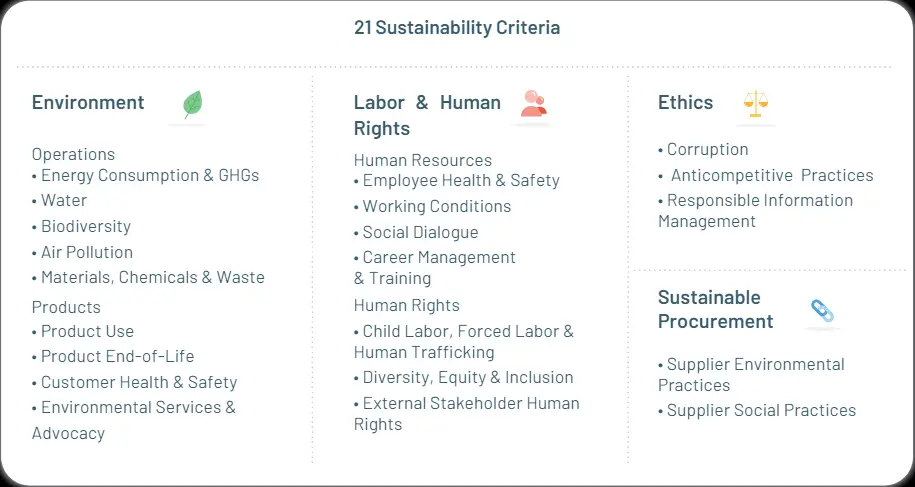
Sustainability Reference Model
In India, evaluating a company’s sustainability efforts requires a clear understanding of their management systems. This assessment goes beyond a checklist, looking at a range of interconnected sustainability issues. Here’s how CleanCarbon tailors its approach:
- Focus on National Priorities: We prioritise issues most relevant to India's sustainable development goals and align our framework with national frameworks like the BRSR
- International Benchmarks: We leverage established global standards like the UN Global Compact and ILO conventions to ensure a comprehensive evaluation.
- Recognized Frameworks: We consider leading international frameworks like GRI standards and ISO 26000 to ensure a robust and widely recognized assessment.
By combining these elements, CleanCarbon delivers sustainability ratings that are meaningful within the Indian context, while also reflecting international best practices. This empowers Indian businesses to benchmark their performance against global standards and contribute to a more sustainable future for India.
Industry-Specific Rating
We understand that sustainability priorities differ across industries, company sizes, and operating locations in India. That’s why our assessments are customized for each company. Here’s how it works:
- Company Profile: When you register, you provide details about your industry, size, and locations.
- Tailored Questionnaire: Our internal analysis identifies the most relevant sustainability issues for your company, creating a focused questionnaire.
- Streamlined for Smaller Businesses: Smaller or office-based companies in India receive shorter questionnaires, ensuring efficiency and relevance.
Benefits for Indian Companies:
- Focused Assessment: Avoid wasting time on irrelevant sustainability criteria.
- Relevant Insights: Gain actionable recommendations aligned with your specific challenges and opportunities within the Indian context.
- Efficiency: Streamlined questionnaires save time and resources for all company sizes.
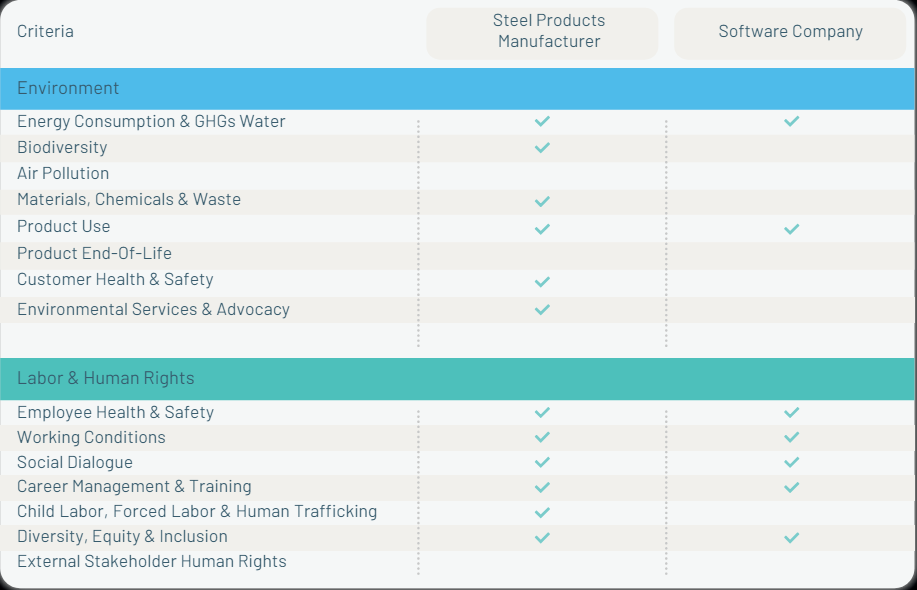
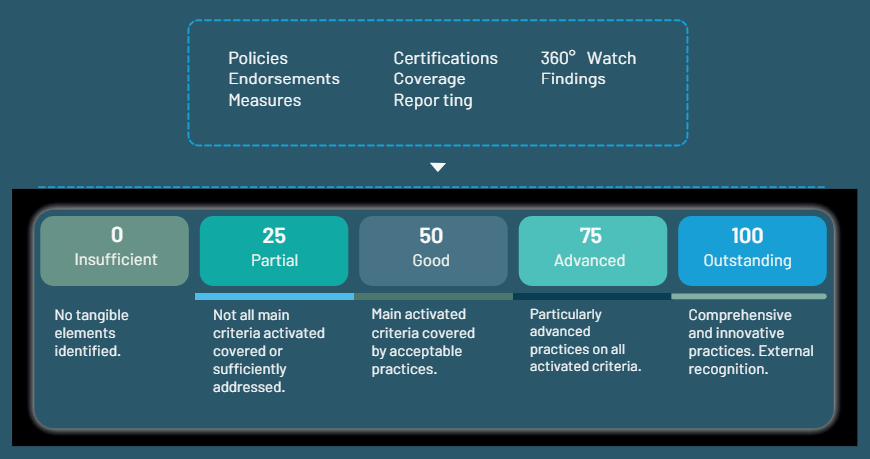
Scoring Process
The information captured through document analysis provides an overview of the sustainability management system of the company under assessment.Depending on the quality and quantity of information collected via supporting documentation, a score from 0 to 100 is allocated to each management indicator in each theme. The score is expressed in increments of 25, ie. 0, 25, 50, 75, 100 (see the diagram below).
The scoring of the eight management indicators is based upon strict scoring guidelines that all analysts apply. Regular training and internal quality controls are performed to ensure consistent scoring among analysts. Each scoring level is associated with a clear list of requirements.
Scoring Scale
The assessment score enables companies to understand where their sustainability performance stands in absolute terms and to benchmark their performance against industry peers. The scoring scale is applicable for each theme and for the overall score.
The overall score is a weighted average of the theme scores. The activation and weight of each theme depend on the company’s industry, size and operational locations, enabling the unique characteristics of each company to be taken into account. Here are some examples of how theme weights differ across industries:
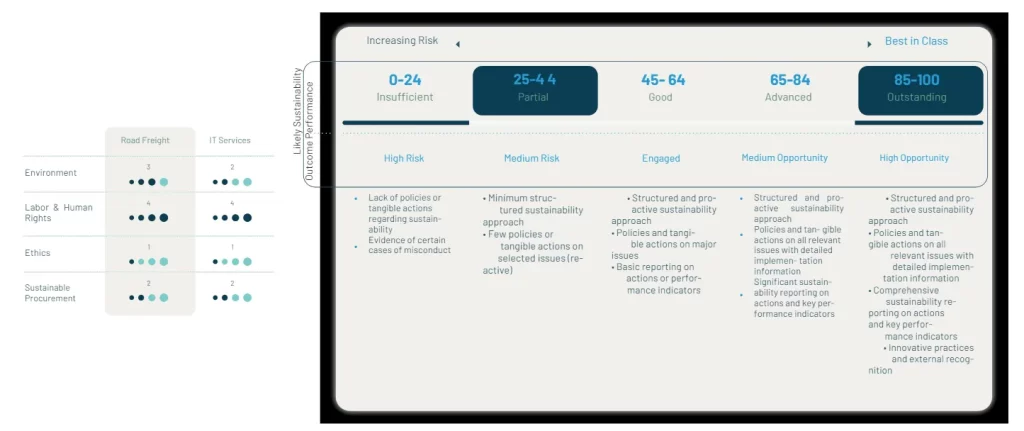
Sample Scorecard Report
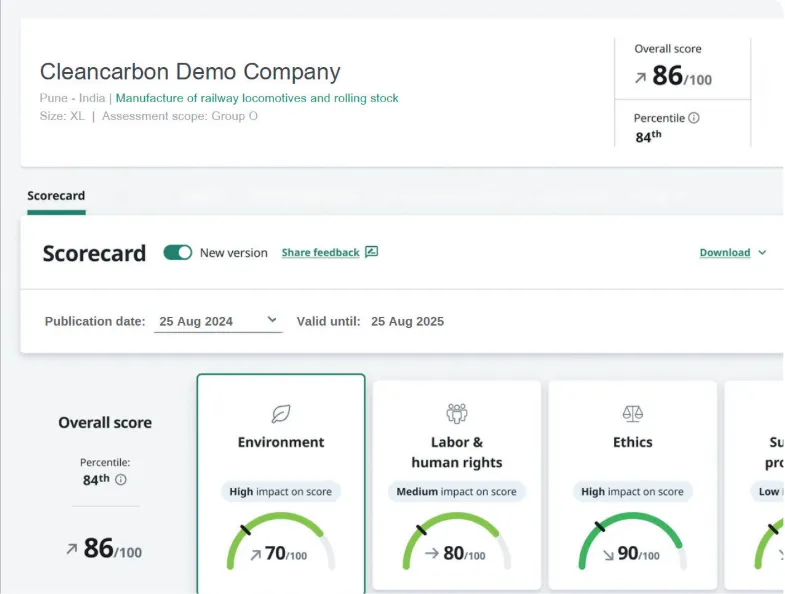
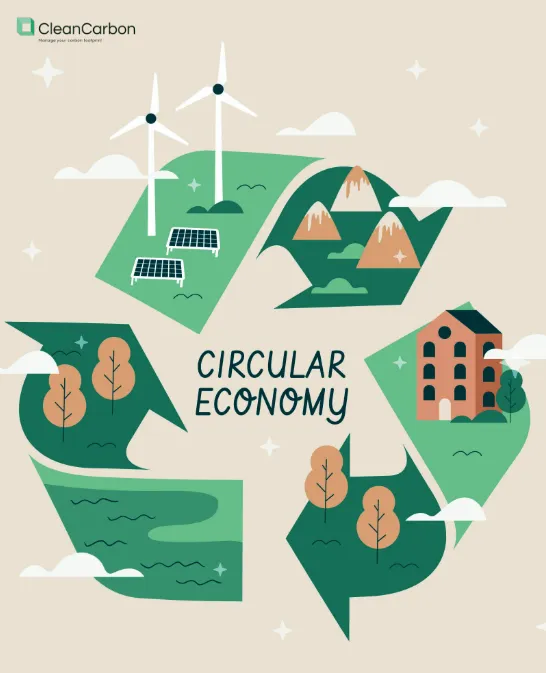
Moving Forward
Indian executives are recognizing the rising importance of integrating sustainability into the selection and management of business partnerships. This trend will further accelerate as India implements stricter environmental regulations aligned with global sustainability goals. These regulations target a transparent assessment of organizations’ due diligence in addressing sustainability challenges across their operations, supply chains, and investments.
With its burgeoning industries and complex supply networks, India urgently needs a simple, reliable, and standardized sustainability rating service. Cleancarbon strives to set the market benchmark for comprehensive business sustainability ratings. By supplying reliable and verified sustainability evaluations, we intend to support a nationwide continuous improvement cycle that elevates sustainability standards.
CleanCarbon 8 Principles
- Complete Transparency
- Built for India
- Multiple Sources
- Complete Transparency
- Best in Class Technology
- Assessment by Sustainability Experts
- Accountability
- Rigor and Collaboration
- Continuous Improvement

